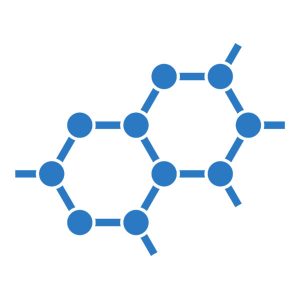While most medications do not impact the circadian rhythm or melatonin production directly, there are several classifications of pharmacological compounds that can impact typical results, depending on the dosage and the individual’s physiology.
Circadian Rhythm/Melatonin Drug Interactions
General Guidance
A general guideline is to stop any medication that your patient can safely and comfortably discontinue under your care for 3-5 days before beginning the assessment.
Prescription Medications
There are two prevailing modalities among healthcare providers regarding the assessment of melatonin production levels in the context of prescription medication and supplements:
- Discontinue all medications and supplements (increases patient burden) to determine the baseline circadian profile to rule out physiological dysregulation first.
- Discontinue sleep-related medications only and determine an individual’s current circadian profile to rule out physiological dysregulation last. In the event of atypical results, you may consider discontinuing or inverting dosing schedules based on the timing of the results to observe effects on sleep behavior.
Melatonin Supplementation
While measurable levels of exogenous melatonin supplementation or melatonin-containing supplements typically persist in saliva for up to 24 hours, we frequently observe prolonged circadian dysregulation for a duration of up to 10 days or more post-supplementation. This can manifest as elevated melatonin levels, phase shifts, and oscillating profiles. This phenomenon is inter-individual dependent and influenced by the duration and dosage of routine supplementation. It is recommended to follow a discontinuation/withdrawal protocol for melatonin supplementation as outlined below:
- 3 days (minimum) for >5 mg dosing as needed
- 5 days (better) for >5 mg routine dosing to >3mg dosing as needed
- 10 days (best) for >3 mg routine dosing to >5mg dosing as needed
- 15 days (ultimate) for >5 mg routine dosing
Circadian Rhythm Drug Interaction Index
While assessing every pharmacological compound, dosage, and combination effect would be astronomical, we are working to create an index of medications that likely impact either circadian timing or melatonin production. Please note that the evidence below is anecdotal and has not been part of a formal clinical trial – however, it is still important to note in the event that atypical results are present. Although the clinical significance is typically moderate, emerging evidence suggests that certain medications elevate the probability of impact to a clinically significant level, as delineated in the table provided below:
| Medication Name/Class | Effect on Melatonin | Impact Probability |
| Stimulants | May Dysregulate Levels | High |
| Sedatives | May Dysregulate Levels | High |
| Beta-blockers | May Decrease Levels | High |
| Selective Serotonin Reuptake Inhibitors (SSRIs) | May Decrease Levels | High/Moderate |
| Fluvoxamine | May Decrease Levels | Moderate |
| Benzodiazepines | May Decrease Levels | Moderate |
| Nonsteroidal Anti-inflammatory Drugs (NSAIDs) | May Decrease Levels | Moderate |
| Proton Pump Inhibitors (PPIs) | May Decrease Levels | Moderate |
| Antipsychotics | May Decrease Levels | High |
| H2 Blockers | May Decrease Levels | Moderate |
| Corticosteroids | May Decrease Levels | High |
| H2 Blockers | May Decrease Levels | Moderate |
| Beta-agonists | May Decrease Levels | Moderate |
| Mirtazapine | May Increase Levels | High |
| Fluoxetine | May Increase Levels | High |
| Clonidine | May Increase Levels | High |
| Lithium | May Increase Levels | High |
| Topiramate | May Increase Levels | High |
| Carbamazepine | May Increase Levels | Moderate |
 Contact: Salimetrics (USA)
Contact: Salimetrics (USA)
